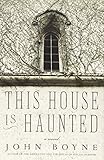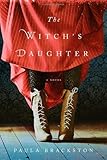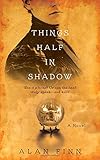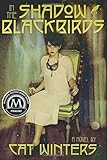
I seem to be spending more reading time than usual in the Midwest this year. I finished re-reading Jane Smiley’s book A Thousand Acres. My AP students are also reading it right now. I won’t review it, as I reviewed it for this blog already.
In addition to A Thousand Acres, I read following books set in the Midwest this year:
- Gilead, Marilynne Robinson
- Shadeland, Andrew Grace
- All the Bright Places, Jennifer Niven
- Song of Solomon, Toni Morrison
Five books might not seem like a lot, but it’s more than usual. I’m not sure why, but I tend to read along the East Coast, and my reading map for this year certainly reflects that habit as well, though it does seem to have a bit more diversity of setting than usual. I can’t help but notice I’ve read only three books set west of the Mississippi this year.
In some ways, I do feel drawn to the Midwest, though I have never lived there myself for any substantial period of time. I lived in St. Louis for about three months, but other than that, I’ve only visited. I was really struck by my visit to Kenyon College in Ohio this summer, especially as I noticed we drove through Licking County on our way from the airport in Columbus to Kenyon in Gambier. My family farmed in Licking County in the 1800’s before they migrated west to Iowa, settling in Story County. Farmers haven’t existed in my direct family line for several generations now, but I suppose most of us descend from farmers, don’t we?
In other news, we are now in the midst of October, my favorite month. We have fresh apples we picked from a local farm in the kitchen. The weather is finally exactly the way I like it (do I ever loathe summer weather). I’m enjoying my current R. I. P. reads, Things Half in Shadow by Alan Finn and Fiercombe Manor by Kate Riordan. It took a little longer than usual for fall to reach us this year, but I’m glad it’s here at last.
The Sunday Post is a weekly meme hosted by Caffeinated Book Reviewer. It’s a chance to share news, recap the past week on your blog, and showcase books and things we have received. See rules here: Sunday Post Meme.
Photo by TumblingRun 
























